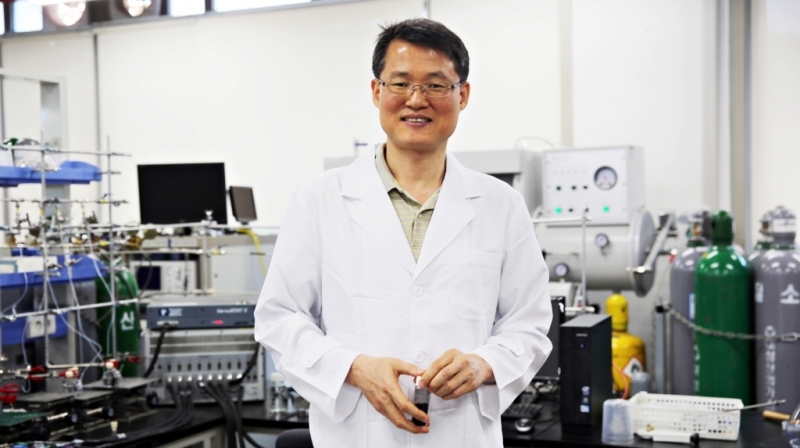In recent years, considerable scientific interest has been devoted to studies of the low dimensional carbon materials, including graphene. Despite being so thin, graphene is an excellent thermal conductor with high electron mobility and low resistivity. Moreover, the graphene devices are expected to be 300 times stronger than steel and to dissipate heat more efficiently than current silicon-based transistors.
While all these characteristics could overcome some of the inherent limitations of silicon (Si) and other materials, there still remains a significant problem with the lack of graphene’s switching off mode. Unlike conventional semiconductors, when graphene is used in a switching transistor electric current cannot be sufficiently interrupted because it has zero band gap and this scupper its use in next-generation of transistors.
A Korean research team headed by Jong-Beom Baek, Professor and Director of the Interdisciplinary School of Green Energy and Advanced Materials & Devices may have found a solution to overcome the limitation of graphene as a switching transistor.
UNIST’s advanced material research is expected to gain momentum for development as the Ministry of Science, ICT and Future Planning (MSIP) of Korea vowed massive support for the development of advanced carbon materials for the next generation nanoelectronic devices.
This study will be funded by MSIP of Korea, under the project to support leading researchers for the next 9 years. The research team has now raised about 6.7 million USD in funding.
Professor Baek states, “Because graphene has zero band gap, it is impossible to switch off graphene for a transistor and this has been very problemetic.” He adds, “However, with invaluable support from MSIP, we are determined to spur development of a whole new low-dimensional carbon nanomaterial to save the troubled graphene transistor.” Prof. Baek anticipates that this research project could help UNIST to become one of the leading research institutes in the world in the field of innovative next-generation materials.















